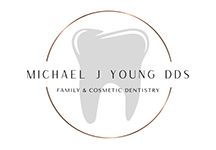 Headaches are common for many people, and most of us have had at least one in our lifetime. Often, a headache means little more than stress, excessive eye strain from being in the sun too long, or listening to loud music consecutively for too long. A migraine, however, can be too intense to disregard as par for the course, and usually, there’s a reason why your head hurts so much. Patients who experience chronic migraines without an accurate diagnosis can often find the root of their discomfort in TMJ disorder, a jaw dysfunction that includes a wide variety of other symptoms, too.
Headaches are common for many people, and most of us have had at least one in our lifetime. Often, a headache means little more than stress, excessive eye strain from being in the sun too long, or listening to loud music consecutively for too long. A migraine, however, can be too intense to disregard as par for the course, and usually, there’s a reason why your head hurts so much. Patients who experience chronic migraines without an accurate diagnosis can often find the root of their discomfort in TMJ disorder, a jaw dysfunction that includes a wide variety of other symptoms, too.
Do Your Jaws Hurt, Too?
TMJ stands for temporomandibular joint. You have two of them (located in front of and just below each ear) that connect your lower jaw to the temporal bones in your skull. Like all joints, TMJs prevent your mandible from scraping against your skull bones as it moves around. The combination pivot/hinge joints distribute your bite’s pressure throughout the entire joint, instead of focusing it on a single point. An injury, an imbalanced bite, a teeth-grinding habit, or a host of other issues can contribute to TMJ disorder, which describes a condition where the joints are damaged and can’t work properly. As the disorder aggravates your jaw’s nerve, the pain can be transmitted throughout the nerve’s path, which traverses most of your head, neck, and face, and is responsible for your jaw’s movement. Besides migraines, common TMJ disorder symptoms include;
- Popping/clicking noises when you open and close your mouth
- Difficulty moving your jaw; locked jaw
- Chronic earaches
- Ringing in the ears, or tinnitus
- Sore, aching jaw and facial muscles
- Sore and achy neck muscles
- Involuntary teeth-grinding
Treating TMJ Disorder
Unlike tooth decay and gum disease, you can’t always prevent TMJ disorder from forming. However, you can treat the conditions that lead to the disorder, such as crooked teeth or an asymmetrical jawbone. Minor cases of TMJ disorder can often be treated with oral splints, designed to keep your jaw properly aligned while its joints and muscles heal. After a comprehensive examination, Dr. Young will thoroughly explain the state of your oral health, recommend an appropriate treatment, and explain how the treatment will improve your bite’s balance.
About Michael J. Young, DDS:
To request more information, or to schedule an appointment with Dr. Young, contact our Lafayette dentist office at 337-237-6453. We serve families living in Breaux Bridge, Broussard, Scott, Youngsville, and surrounding communities. Dr. Young also invites you to find us on Facebook, where you’ll find news, tips, and valuable resources.

